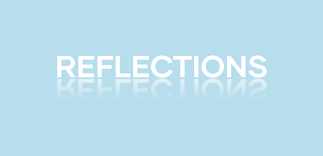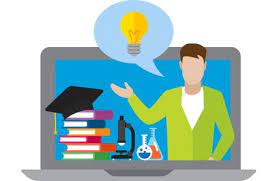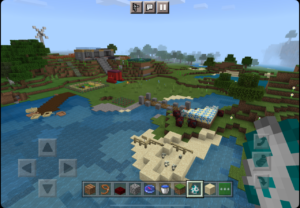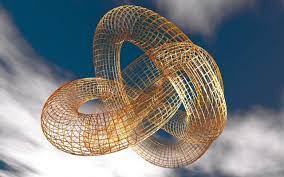Reflections #1

This course has been based around The Manifesto for Teaching Online and I have re-visited my posts to see what I was initially interested in 3 months ago, when I started my first blogs on the Manifesto. Here, I will briefly summarise my conclusions of a couple of aspects of the course.
Technology and the Teacher
 I have certainly been interested in exploring the role of the teacher within a digital educational framework. At the beginning of my blogging, I had quite a stereotypical view (which I now understand was rather an essentialist and reductive one) that teachers are in ‘a permanent deficit to technology’. My experiences as a teacher in East Africa, working with technologically untrained colleagues are perhaps why I had this opinion. Through the last couple of months I have learnt not to make such sweeping statements. However, I want to acknowledge that teachers have huge expectations made of them. The mistake they often make is to try and replicate the traditional classroom whilst teaching online. Instead, they should “seek to surface ways of bringing automation and pedagogy together to productive and playful relationships that develop teachers’ and students’ critical understanding of digital education.” (page 77 The Manifesto for Teaching Online).
I have certainly been interested in exploring the role of the teacher within a digital educational framework. At the beginning of my blogging, I had quite a stereotypical view (which I now understand was rather an essentialist and reductive one) that teachers are in ‘a permanent deficit to technology’. My experiences as a teacher in East Africa, working with technologically untrained colleagues are perhaps why I had this opinion. Through the last couple of months I have learnt not to make such sweeping statements. However, I want to acknowledge that teachers have huge expectations made of them. The mistake they often make is to try and replicate the traditional classroom whilst teaching online. Instead, they should “seek to surface ways of bringing automation and pedagogy together to productive and playful relationships that develop teachers’ and students’ critical understanding of digital education.” (page 77 The Manifesto for Teaching Online).
Learning Spaces
 This is a concept I learnt when I did the Minecraft exercise. I really enjoyed this part of the course and it summed up how important and potentially powerful it is to bring together automation and pedagogy, as long as we remember what Biesta succinctly pointed out in Giving Teaching Back To Education: Responding to the Disappearance of the Teacher (2016) that “the point of education is never that children or students learn, but that they learn something, that they learn this for particular purposes, and that they learn this from someone.” If we remember this, within the expanses (rather than confines) of the digital opportunities for educational purposes, then I think digital education, teaching and learning is hugely successful.
This is a concept I learnt when I did the Minecraft exercise. I really enjoyed this part of the course and it summed up how important and potentially powerful it is to bring together automation and pedagogy, as long as we remember what Biesta succinctly pointed out in Giving Teaching Back To Education: Responding to the Disappearance of the Teacher (2016) that “the point of education is never that children or students learn, but that they learn something, that they learn this for particular purposes, and that they learn this from someone.” If we remember this, within the expanses (rather than confines) of the digital opportunities for educational purposes, then I think digital education, teaching and learning is hugely successful.
 I was sceptical of the Learning Spaces section of the course. Yet I enjoyed visualising online learning and what it meant for me and what it meant for my peers. Friesen, in Posthumanism = Posteducation: A Reply to Siân Bayne’s Posthumanism: A Navigation Aid for Educators writes that “posthumanists say we must see ourselves as “entangled” with the world and with technology”. He is referring to Bayne’s idea of the entanglement of technology and education that is explored in the article (2015) What’s the matter with ‘technology-enhanced learning’? I think that the idea of entanglement can very much be applied to my visualisations of digital learning spaces. My learning spaces connected to the IDEL course, my peers, Edinburgh as a physical space, where I am in Kenya are very much an entanglement and multi-dimensional.
I was sceptical of the Learning Spaces section of the course. Yet I enjoyed visualising online learning and what it meant for me and what it meant for my peers. Friesen, in Posthumanism = Posteducation: A Reply to Siân Bayne’s Posthumanism: A Navigation Aid for Educators writes that “posthumanists say we must see ourselves as “entangled” with the world and with technology”. He is referring to Bayne’s idea of the entanglement of technology and education that is explored in the article (2015) What’s the matter with ‘technology-enhanced learning’? I think that the idea of entanglement can very much be applied to my visualisations of digital learning spaces. My learning spaces connected to the IDEL course, my peers, Edinburgh as a physical space, where I am in Kenya are very much an entanglement and multi-dimensional.
I will choose one of these topics for my final assignment. Both the role of the teacher within technology and how digital technologies shape learning spaces have interested me greatly. Let’s see which one I choose.




Recent comments